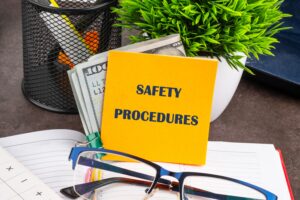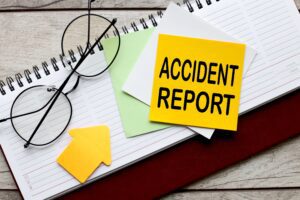Last Updated on September 3, 2025 by The Young Firm
How Maritime Law Views Liability
Maritime law, also called admiralty law, governs incidents occurring on navigable waters – any body of water supporting commerce, such as oceans, rivers, and large lakes. In these waters, liability isn’t simply assigned to the one “most at fault.” Instead, multiple parties might share responsibility, even if it’s not equal. For example, if you suffered an injury while working on a commercial fishing vessel, the owner’s maintenance practices, the crew’s behavior, and even the design of the equipment might all influence your injury. Each of these factors comes under scrutiny, and depending on the findings, liability can be split among various parties. A maritime accident injury lawyer understands that this split can mean the difference between covering your medical expenses or facing out-of-pocket costs.Evaluating Each Party’s Role in a Maritime Injury
Determining how much blame each party bears means looking closely at the actions leading up to the incident. An attorney will typically examine your role, the vessel’s conditions, and any equipment involved. If you’re a seaman injured while performing tasks on a commercial ship, your conduct, the ship’s maintenance, and the employer’s practices all matter in determining the portion of liability for each party. For instance, suppose you were following safety protocols but encountered faulty machinery. That equipment failure can assign more liability to the vessel’s owner or operator. On the other hand, if you acted outside of standard safety procedures, your actions might shift a portion of the blame to you, reducing your compensation. Maritime accident injury lawyers evaluate every detail to understand each party’s contribution to the accident and adjust claims based on these findings.Vessel Owners and Crew Members: A Shared Responsibility
 In many cases, both the vessel’s owner and the crew may share responsibility. Maintenance of the vessel, crew training, and overall safety protocols often fall under the owner’s purview. If the owner fails to ensure regular inspections, keep equipment functioning, or enforce safety rules, they may bear a significant share of the liability. Crew members also play a role; they’re expected to operate responsibly and within guidelines. A failure on their part to follow protocols can shift some liability to them.
If, for instance, you’re a passenger injured due to a crew member’s negligence, that crew member’s actions can affect your claim. Maritime accident injury lawyers review incidents closely to see how the crew’s behavior may have contributed to the accident.
In many cases, both the vessel’s owner and the crew may share responsibility. Maintenance of the vessel, crew training, and overall safety protocols often fall under the owner’s purview. If the owner fails to ensure regular inspections, keep equipment functioning, or enforce safety rules, they may bear a significant share of the liability. Crew members also play a role; they’re expected to operate responsibly and within guidelines. A failure on their part to follow protocols can shift some liability to them.
If, for instance, you’re a passenger injured due to a crew member’s negligence, that crew member’s actions can affect your claim. Maritime accident injury lawyers review incidents closely to see how the crew’s behavior may have contributed to the accident.
Factors That Determine Your Claim’s Outcome
When pursuing a maritime injury claim, several key factors can affect the outcome of your case. Each element that contributed to the incident is reviewed to determine how much responsibility each party bears, which impacts the damages you might receive. Here are the main factors typically assessed in these cases.The Conduct of All Parties Involved
Your actions, as well as the actions of others present at the time of the accident, are carefully examined. If you follow proper safety procedures, that will work in your favor. But if any of your actions fell outside standard protocols, your share of responsibility can increase, reducing the compensation you receive. On the flip side, if a crew member or a fellow worker failed to adhere to safety guidelines or acted negligently, their actions will weigh heavily in the fault determination process. When multiple people share responsibility, the percentage of fault assigned to each party can directly affect the final compensation awarded.The Condition of Equipment and Machinery
The state of the equipment or machinery involved in the incident is another major factor. Faulty or poorly maintained equipment can point to negligence by the vessel’s owner or operator. If a piece of machinery fails due to poor maintenance or substandard repairs, the owner can bear a larger share of the blame. On the other hand, if the equipment was in perfect working condition and the accident was due to human error, then the focus will shift away from the machinery itself and onto the individuals involved. When equipment failure plays a central role, your attorney will likely work to demonstrate how the lack of proper maintenance or faulty design contributed to the incident.Maintenance and Inspection History
The maintenance and inspection history of the vessel also plays an essential role in determining fault. A well-maintained vessel is less likely to be the site of accidents caused by equipment failure or hazardous conditions. But if your attorney finds that the vessel owner neglected routine inspections or skipped essential repairs, it can increase the owner or operator’s liability. Documentation that shows recurring issues with specific parts of the vessel or logs that reveal missed inspections can strengthen your claim. For example, if the vessel had a history of faulty machinery that wasn’t addressed, that history can work in your favor, showing a pattern of neglect.Training and Supervision of Crew Members
The level of training and supervision provided to crew members also comes under scrutiny. Crew members should be well-trained to handle their responsibilities safely. If they didn’t receive proper training or the ship lacked adequate supervision, the company or owner can bear responsibility for the incident. If, for instance, a crew member mishandled equipment or made a critical mistake because they received inadequate training, the liability may shift toward those responsible for hiring and supervising. Your attorney may assess the training records and supervision protocols to see if they contributed to the accident. Inadequate training and poor supervision are often strong indicators of negligence. Each of these factors helps create the full picture of responsibility, guiding the allocation of fault in your case. By understanding each element’s role, you can gain insight into how your actions and those of others impact the potential outcome of your claim.How an Injury Lawyer Examines Evidence in a Maritime Claim
Collecting and analyzing evidence is a foundational part of any maritime injury case. To strengthen your claim, maritime accident injury lawyers gather a range of evidence to help assign fault accurately. Evidence often includes maintenance logs, eyewitness accounts, and incident reports. Each piece of evidence can help show who was responsible and to what extent.The Importance of Maintenance Logs
Maintenance logs record the vessel’s upkeep and can reveal whether essential repairs consistently occurred. If these logs indicate a history of equipment issues or missed maintenance, your lawyer can use this information to show a pattern of neglect. Demonstrating that the vessel owner neglected regular maintenance increases the likelihood that the fault will fall on them.Eyewitness Accounts and Statements
Eyewitnesses play a critical role in establishing the events leading to your injury. People present during the accident can provide first-hand accounts that help clarify what happened. Your lawyer may interview crew members, passengers, or others who can offer insight into the incident’s circumstances. Eyewitnesses often highlight whether the crew followed safety protocols and whether other parties acted negligently.Incident Reports
Official reports filed after the accident document essential details, such as the conditions at the time of the incident, who was involved, and any immediate actions taken. These reports often contain information that can support your claim by establishing an objective view of the accident. Incident reports might note if any safety procedures were overlooked or if equipment malfunctioned, which can influence how fault is assigned.Photographic and Video Evidence
Visual evidence can often paint a more vivid picture than words alone. Photographs and video recordings from the accident scene can provide clear evidence of the conditions that led to your injury. If you or someone else took photos or videos shortly after the accident, ensure your attorney accesses them. These images may capture unsafe conditions, faulty equipment, or other hazards that contributed to the incident. All evidence mentioned above can provide valuable insight into who or what contributed to your injury. Maritime accident injury lawyers work with you to collect and organize this evidence, building a comprehensive case that clearly demonstrates responsibility.How Documentation Helps Establish Fault
 Documentation helps present a clearer view of the events leading to your injury. Accident reports, maintenance logs, and photographs offer valuable insights into how the accident occurred. If the records show negligence or poor safety practices, it strengthens your case.
Documentation helps present a clearer view of the events leading to your injury. Accident reports, maintenance logs, and photographs offer valuable insights into how the accident occurred. If the records show negligence or poor safety practices, it strengthens your case.
Accident Reports and Maintenance Logs
Accident reports and maintenance logs provide an objective record of the vessel’s history and the conditions at the time of the accident. Maintenance logs that reveal recurring problems or deferred repairs can demonstrate that the vessel’s owner ignored necessary upkeep. Accident reports also add context to the incident, showing whether equipment or crew issues contributed to the accident.Why Accessing Documentation Matters
Having access to these documents can greatly improve your claim’s outcome. Maritime accident injury lawyers rely on these records to piece together the events leading up to the accident and to demonstrate responsibility. If you’re pursuing a case, working with your lawyer to gather all relevant documentation is essential, as it supports your position when negotiating damages.Why Your Actions Are Under Scrutiny
Your conduct during the incident is equally relevant. Courts will examine whether you followed standard safety procedures and guidelines, especially if you were part of the vessel’s crew. Let’s say you’re injured due to a sudden shift in equipment. If you weren’t wearing the appropriate safety gear or operated the machinery against regulations, your compensation might be reduced proportionally. A maritime accident injury lawyer will review the specifics of your role in the accident to determine if any of your actions might lower the liability of other parties. This doesn’t mean you’re automatically at fault; rather, it’s a way to ensure all factors are fairly considered in the final judgment.Protecting Your Claim in Shared Responsibility Cases
One of the best ways to protect your claim is to work closely with a maritime accident injury lawyer who can help preserve evidence, document witness statements, and review all contributing factors. Timing is essential; gathering accurate, timely information about your accident can support your claim, especially in cases where fault may be divided among several parties. If you’re dealing with an injury from a maritime incident, your lawyer’s review of the accident scene, interviews with other crew members, and access to the vessel’s logs are invaluable in building a strong claim. The more thorough the evidence, the stronger your claim when seeking compensation.Long-Term Implications of Fault Allocation in Maritime Law
Fault allocation doesn’t just impact immediate compensation but can also affect future claims or cases involving the same parties. If a vessel owner is repeatedly liable for accidents, this history can influence future liability determinations. However, it may impact future claims if you’re found partially at fault in multiple incidents. Working with a maritime accident injury lawyer ensures you understand how fault allocation might affect you for the current case and any future claims. It’s important to approach each case with a complete view of how fault might impact your rights in the short and long term.Moving Forward with Your Maritime Injury Case

Frequently Asked Questions
1. How does comparative negligence apply in maritime injury cases?
Maritime law allows multiple parties—including the crew, vessel owner, and the injured worker—to share blame, with compensation adjusted based on fault.
2. What types of actions are examined to determine liability?
Liability is assessed by examining each party’s conduct, the condition of equipment, vessel maintenance records, available training, and supervision.
3. Who bears responsibility in a maritime accident?
Both vessel owners and crew members can be held responsible—owners for unsafe vessels or poor training, and crew members for failing to follow safety protocols.
4. What evidence helps determine fault in a maritime injury claim?
Key evidence includes maintenance logs, inspection history, eyewitness testimony, incident reports, photos/videos, and safety documentation.
5. How do my actions affect my compensation in fault cases?
If you failed to follow safety procedures or contributed to the accident, your compensation may be reduced proportionally.
6. Why is early evidence gathering important in shared-fault cases?
Documenting the accident scene, preserving logs, and recording eyewitness accounts quickly helps build a stronger case when responsibility is shared.
7. Can shared liability impact future legal claims?
Yes—fault assigned in one case can influence liability outcomes in future incidents involving the same parties or vessel.
8. Why work with a maritime injury lawyer in cases involving comparative negligence?
An experienced attorney helps preserve evidence, accurately assess fault distribution, and advocate effectively for your fair compensation.
